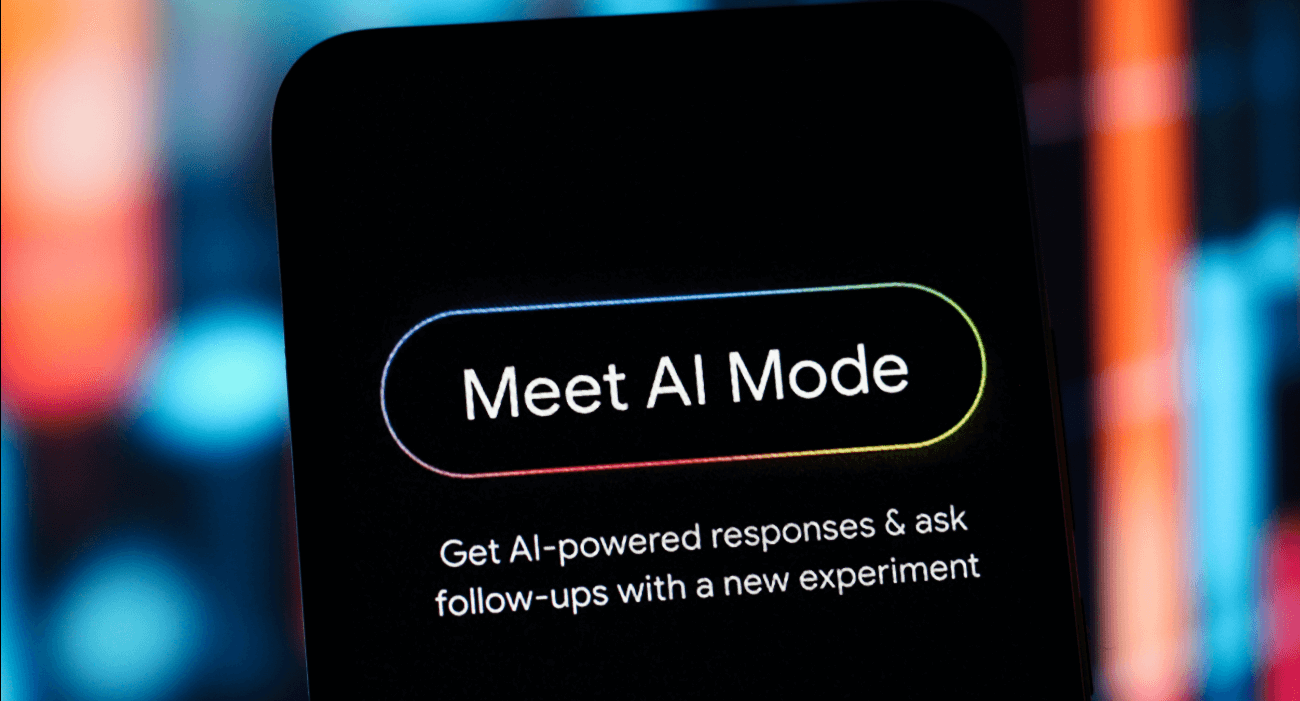
GOOGLE AI MODE AND THE BEGINNING OF A NEW RESEARCH
What is Google AI Mode
With AI Mode, Google inaugurates a new phase in the history of online search.
It is a feature that integrates generative artificial intelligence directly into the SERP, allowing the search engine to analyze, synthesize, and return complex answers in natural language.
It therefore does not simply display a list of links, but provides a reasoned synthesis of the most relevant sources, taking on the role of an active interlocutor in the relationship with the user.
This is a change that affects not only search technology, but the very nature of the online information experience.
From navigation to interaction
For thirty years, users have explored the web through paths made of links, citations, and insights. Every click represented a choice and an act of curiosity.
With AI Mode, this approach changes radically. Users are no longer required to browse information; instead, they receive a direct and contextualized elaboration of the answer they seek.
Google no longer asks, “What do you want to search for?”, but rather proposes what it considers most relevant based on the expressed intent.
This transition transforms search from a tool into a guided experience—an evolution that redefines the very concept of access to knowledge.
The new centrality of experience
This transformation has profound implications for marketing.
For years, the discipline has focused on optimization for search engines; today, it must return to focusing on the user experience and perceived value.
AI Mode filters and interprets: what is displayed depends not only on semantic relevance but also on the quality and consistency of the message.
The “right moment” no longer coincides with the search act, but with the moment when artificial intelligence deems a piece of content relevant.
This pushes brands to build stronger and more distinctive narratives, capable of moving beyond keyword targeting and positioning themselves on the plane of authority and trust.
Implications for marketers
For marketing professionals, the change is substantial.
Until recently, the goal was to understand Google’s rules in order to optimize content visibility.
Today, the focus must shift to a deeper level: understanding people—their needs and implicit expectations.
Artificial intelligence can synthesize information but cannot grasp the emotion, culture, or intuition behind behavior.
The human value in marketing lies precisely in this ability to interpret and anticipate what data alone cannot explain.
A shift in mindset, not in tools
AI Mode is not simply a Google update but the sign of a broader transformation: the transition toward a web that becomes a continuous dialogue between people and artificial intelligences.
In this scenario, marketers are no longer mere intermediaries but interpreters of meaning.
They must understand how technology shapes behaviors, but also how collective behaviors influence technological evolution.
It is a two-way relationship that redefines the role of communication and brand strategy.
So what
Google AI Mode marks the beginning of a new phase in search—one in which technology interprets and marketing must listen.
The task for brands will no longer be to stand out among results, but to create content worthy of being interpreted.
In a web where answers become immediate and synthetic, the difference will be made by authentic, consistent, and valuable messages. Artificial intelligence is learning to understand.
We, as communicators, must learn to be understood. At Intarget we help companies understand and leverage new AI-driven search dynamics to build competitive advantage and long-term relevance.






